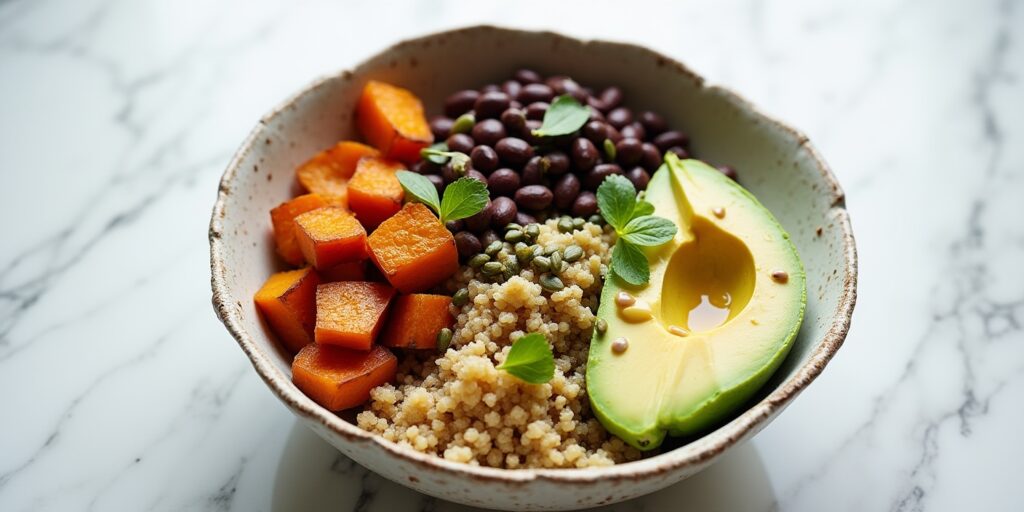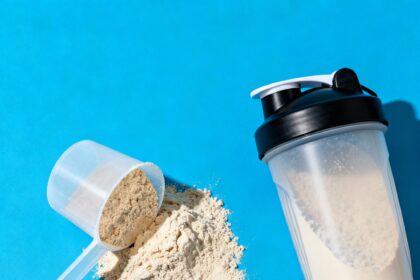By Yushan Zhang
Why Athletes Consider Plant-Based Diets
Plant-based diets have gained popularity for their health benefits, including lower risks of chronic disease, improved cardiovascular health, and reduced body fat. For athletes, the key question is whether a plant-based diet can provide enough fuel, protein, and nutrients to support intense training, muscle growth, and peak performance.
The Real Benefits of Plant-Based Diets
The main advantage of plant-based diets comes not just from avoiding animal products but from increased intake of whole foods—such as whole grains, vegetables, fruits, legumes, nuts, and seeds. These foods are rich in antioxidants, fiber, and micronutrients that support overall health and recovery.
In contrast, refined foods (like white bread and chips) offer little benefit, even if they’re free of animal products. For athletes, careful meal planning is essential to maximize the benefits of plant nutrition.

Carbohydrates, Fats, and Energy
Endurance athletes may especially benefit from the higher carbohydrate content in plant-based diets. Complex carbs provide steady energy and glycogen storage, fueling long training sessions.
Additionally, plant diets are naturally lower in saturated fats and cholesterol, which may reduce blood viscosity, improve oxygen delivery, and boost stamina. Research suggests that the more animal products people avoid, the lower their blood viscosity—an advantage for athletic performance.
Plant-Based Sources of Protein
One of the biggest concerns about plant-based eating is protein intake. However, there are plenty of high-quality plant-based protein sources, including:
- Tofu – ~22g per half block
- Lentils – ~18g per cup (cooked)
- Spinach – ~15g per 3 cups (cooked)
- Soymilk & plant-based protein powders – ~20–30g per serving
With proper planning, plant-based athletes can meet protein needs without supplements, though some may still choose protein powders for convenience.
Key Micronutrients to Monitor
Athletes on plant-based diets should pay special attention to certain vitamins and minerals:
- Vitamin B12 – Not found naturally in plants; supplementation is essential.
- Iron & Zinc – Present in plants but less bioavailable due to phytates; soaking, fermenting, or sprouting foods improves absorption.
- Calcium & Vitamin D – Often added in fortified plant milks and cereals.
These nutrients are crucial for energy production, bone health, and recovery. Without proper attention, deficiencies could hinder performance.

Antioxidants and Recovery
Plant-based diets are especially rich in antioxidants, which may help reduce exercise-induced oxidative stress and post-exercise inflammation. Research shows that diets high in fruits, vegetables, legumes, and seeds improve recovery and may lower levels of inflammation markers like C-reactive protein. Unlike supplements, antioxidant-rich foods provide a safe and effective way to protect against cellular damage while supporting immune health.
Immunity and Long-Term Health
Athletes often face suppressed immune function due to heavy training loads. Plant-based diets, packed with micronutrients, can support stronger immune defenses, reducing illness and training disruptions. Improved immunity means athletes can train more consistently and perform at a higher level.
Can Plant-Based Diets Support Athletes?
When carefully planned, plant-based diets can provide all the energy, protein, and nutrients athletes need to train hard, recover well, and perform at their best. Beyond athletic performance, they also support cardiovascular health, reduce inflammation, and strengthen immunity. It’s no surprise that more world-class athletes are embracing plant nutrition as a long-term strategy for performance and health.







































